
UBC leads the way in new global university impact rankings
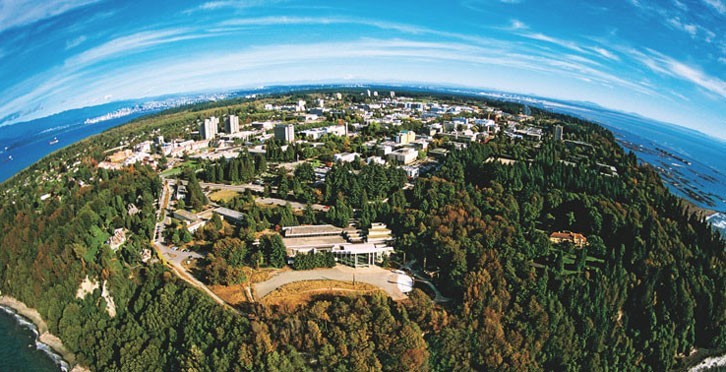
The University of British Columbia has been ranked number three in the world in a new global university ranking from Times Higher Education that aims to measure success in delivering the United Nations Sustainable Development Goals (SDGs).
The 17 goals which include providing inclusive and equitable quality education, achieving gender equality and fostering innovation, were adopted by the United Nations in 2016 and provide a framework for developing the world in a sustainable way. The inaugural edition of the rankings reflects metrics based on 11 of the SDGs.
Of the 11 global development themes that were measured, UBC comes in number 3 in the world and number one in Canada for creating safe, sustainable cities, and UBC Sauder School of Business has played a key role in this inspiring achievement.
Robert Helsley, Dean of the UBC Sauder School of Business and Grosvenor Professor of Cities, Business Economics and Public Policy, is very proud of the school’s dedication and progress towards building more sustainable cities:
“These new rankings reflect the great commitment we have towards building a more just, sustainable and prosperous world. Right now, half of the world’s population live in cities and most urban expansion in the coming decades will take place in the developing world. We must stay focused on sustainable growth. Our mission is to generate meaningful and lasting prosperity, which can only be achieved by transforming the way we create and manage our urban environments. The work we are doing is clearly making a significant impact, and we plan to keep building on this impressive momentum.”
UBC Sauder boasts a large roster of faculty members with varied and expansive research on sustainability in urban areas.
Read more about what our faculty and staff are doing to promote sustainability in cities and communities around the world.
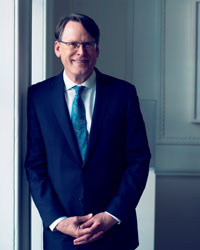
Robert Helsley
Robert Helsley, Dean of UBC Sauder, has conducted extensive research focusing on the growth and development of urban areas, the operation of private land markets, and the economic impacts of government tax, spending and regulatory policies. Much of his work examines the economics of business clusters, including studies of the underlying economic forces that cause specialized clusters to form, and the impacts of clusters on innovation, entrepreneurial activity, organizational form, productivity, earnings and city size. He has also studied the impacts of economic growth on land and housing prices, the economics of urban sprawl, urban blight and urban redevelopment, and the causes and consequences of privatization in the public sector. In October 2013, he was named the Grosvenor Professor of Cities, Business Economics and Public Policy in recognition of his outstanding work in these areas.
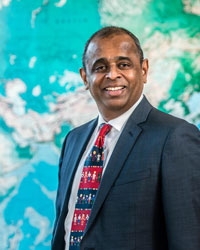
Murali Chandrashekaran
Murali Chandrashekaran is currently serving as Vice Provost (International) at UBC and the Fred H. Siller Professor of Marketing and Behavioural Science at UBC Sauder. He is widely published in leading academic business journals in the areas of metrics (specifying models to capture various market phenomena) and valuation (estimating the impact of assets and investments on market-based outcomes). His current research is in the area of resilience valuation and asset management – specifying measures, monitoring systems, and estimation models to derive metrics that capture the short-term and long-term impact of assets and investments on resilience of neighborhoods, cities and regions. He teaches courses in the area of sustainable development goals, resilient cities and inclusive prosperity, and is currently leading the creation of a global Collaborative for Urban Resilience and Effectiveness (CURE) that brings together several universities and practitioners from business, government, and civil society to mobilize talent, knowledge, and experience across disciplines, universities, community organizations, and corporates to drive urban prosperity, innovation and development.
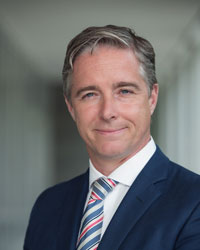
James Tansey
James Tansey is Executive Director of the UBC Sustainability Initiative and the Centre for Social Innovation & Impact Investing at UBC Sauder. He is responsible for research and teaching related to UBC’s strategic campus infrastructure projects and leads on UBC’s social innovation programs. Following the Vancouver 2010 Olympic Winter Games, Dr. Tansey was selected as one of four international advisers working with the United Nations Environment Programme on the environmental strategy for the 2014 Winter Olympic Games in Sochi, Russia. Dr. Tansey founded NatureBank Asset Management, Canada’s largest carbon project developers, which created the Great Bear Rainforest Carbon Project. He has served on the Provincial Green Energy Advisory Task force, the Climate Leadership Team and most recently as a member of the Social Innovation and Social Finance Co-Creation Committee for Minster Duclos. He has written extensively on social innovation, impact investing, scenario methods and climate change. He was selected as a Business in Vancouver Top 40 under 40, a finalist in the EY Entrepreneur of the Year and in 2014 Received the Queen’s Diamond Jubilee Award for service to the environment in Canada.

Katherine White
Katherine White holds the Professorship in Consumer Insights, Prosocial Consumption, and Sustainability at UBC Sauder. Her research examines how to encourage people to engage in sustainable behaviours. In some of her work on fostering sustainable cities, she has conducted a series of field experiments looking at how to encourage residents to act sustainably, for example by recycling and by composting. She finds that when the collective or group is emphasized (“We can make a difference...”) and this is combined with information conveying positive actions of others (i.e the norm that the sustainable behavior is approved of and undertaken by others is communicated), people are most likely to engage in sustainable waste disposal behaviors. She has recently coauthored the SHIFT framework which outlines how to foster sustainable consumer behaviors. This work slated for publication in the Journal of Marketing and a practitioner-friendly version is forthcoming in Harvard Business Review.
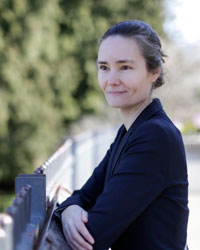
Christie Stephenson
Christie Stephenson is the Executive Director of the Dhillon Centre for Business Ethics at UBC Sauder. Under her direction, the Centre has a strong focus on sustainable finance - integrating it into existing UBC and UBC Sauder classes, developing social finance courses for both UBC Sauder undergrads, MBAs, and Executive Education students, as well as training external professionals like accountants and investment professionals, and consistently speaking publicly to business and professional audiences on the topic. As a result of the Centre’s work on sustainable finance, she was named one of 2019’s Canada Clean50, an award recognizing outstanding contributions to sustainable development and clean capitalism in Canada.
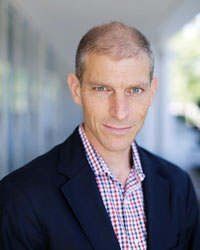
Tom Davidoff
Tom Davidoff holds the Stanley Hamilton Professorship in Real Estate Finance at UBC Sauder and is the Director of the UBC Centre for Urban Economics and Real Estate. His research on housing and mortgages has gained international recognition, and he served as an advisor on housing to the Obama Administration as well as on the Vancouver Mayor's Housing Advisory Council. WIth Tsur Somerville and Andrey Pavlov, his research explored the impact of "infill" housing on neighbouring property values, which enhances density and reduces "sprawl" in urban areas. His work on the 2016 policy proposal, entitled the BC Housing Affordability Fund, calling on the provincial government to address housing affordability in the Lower Mainland with a tax targeting property owners without ties to the local economy, was eventually largely adopted in 2018 through the B.C. government's speculation tax.
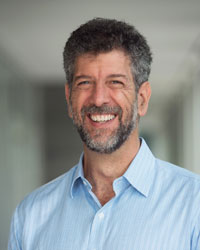
Tsur Somerville
Tsur Somerville is the Real Estate Foundation of BC Professor in Real Estate Finance at UBC Sauder, and is an internationally recognized expert in the economics of cities and affordable housing. He is currently a Senior Fellow with the UBC Centre for Urban Economics and Real Estate, where he previously served as Director from 2001-16. He was also an author of the BC Housing Affordability Fund policy proposal. His research on the subject of sustainable cities has focused on the challenge of how to reuse and repurpose urban space, so that cities can grow “up” rather than “out,” how neighbours perceive density that is going up around them and how landowners can cooperate with redevelopment projects, all with the goal of achieving the density necessary for cities to have a more sustainable footprint.
UBC Sauder proudly involved in the Global Collaborative for Urban Resilience and Effectiveness (CURE). Initiative directly supports sustainable city and community development.

This summer, 10 UBC undergraduate and graduate students from a range of disciplines will collaborate with 30 peers from Yale-NUS College, IIT Madras, the University of Cambridge, and Tecnológico de Monterrey on the inaugural Urban Resilience Summer Program in Chennai, India. Together they will work in virtual teams and on the ground, liaising with the city’s Chief Resilience Officer to tackle urgent issues affecting Chennai including repeated threats of flooding and damage from hurricanes and cyclones, aging and failing infrastructures, poverty, economic inequality and civil unrest.
The Urban Resilience Summer Program, is one of several cross-institutional initiatives leveraged by Murali Chandrashekaran, Vice Provost, International at UBC - that directly support the UN Global Development Goal of creating sustainable cities and communities, and have led to the creation of a Global Collaborative for Urban Resilience and Effectiveness (CURE).
“I am thrilled to see the passion and commitment that our students and faculty demonstrate, in embracing the opportunity to unite with international peers towards the collective goal of driving inclusive urban prosperity, innovation and development,” he said.
“With almost 70% of the world’s population forecasted to live in cities by 2050, and an anti-globalization narrative that threatens inclusive prosperity, our programs mobilize student and faculty talent to build urban resilience and effectiveness.”
Chandrashekaran has played an instrumental role, working with UBC Sauder since 2016 to lead a global faculty team to co-deliver a program on SDG11 – Sustainable Cities and Communities.
Chandrashekaran also notes that “the theme of resilient and sustainable cities is complex and requires a multidisciplinary approach to research and learning. It requires a simultaneous view to themes such as affordable housing, water-food-energy security, access to healthcare, social cohesion and community engagement, business continuity planning, infrastructure and environment, and long-term integrated planning and strategy. It is exciting to see Sauder serving a crucial convening role at UBC to bring all of these themes together and collectively engage with cities to create meaningful impact.”
UBC tops global university impact rankings: Times Higher Education